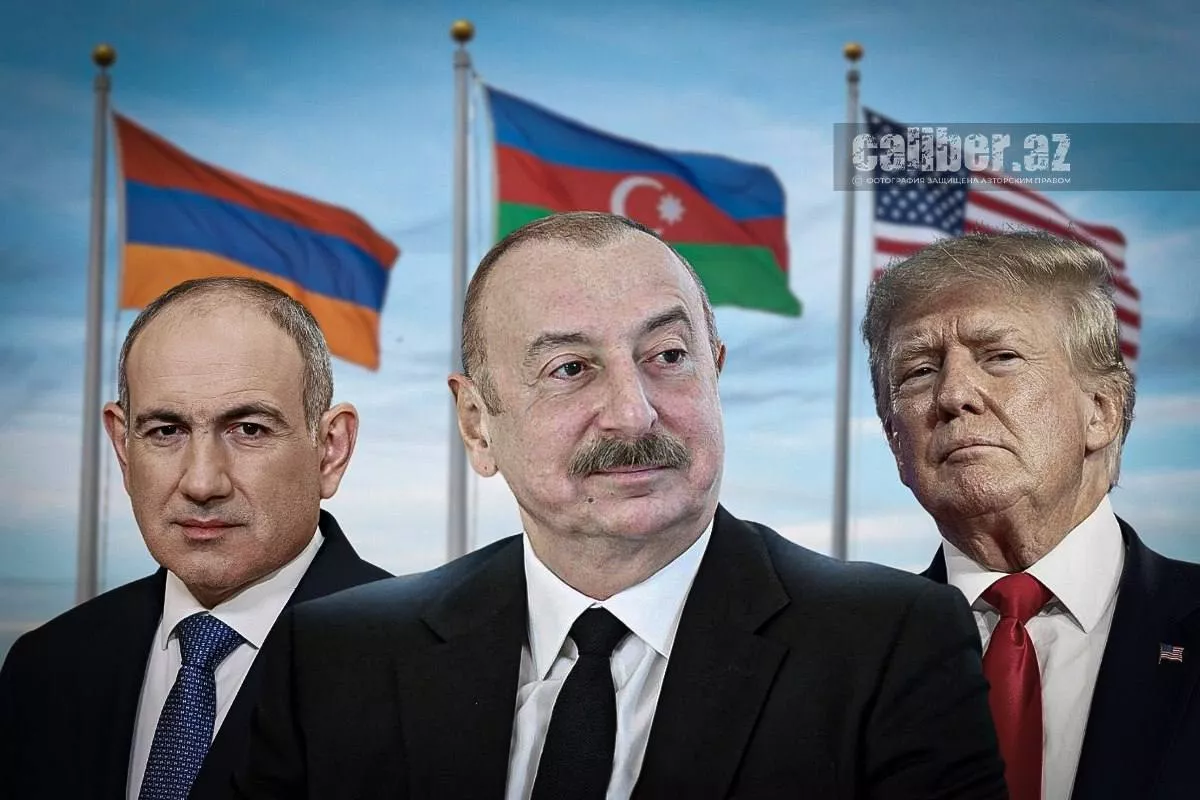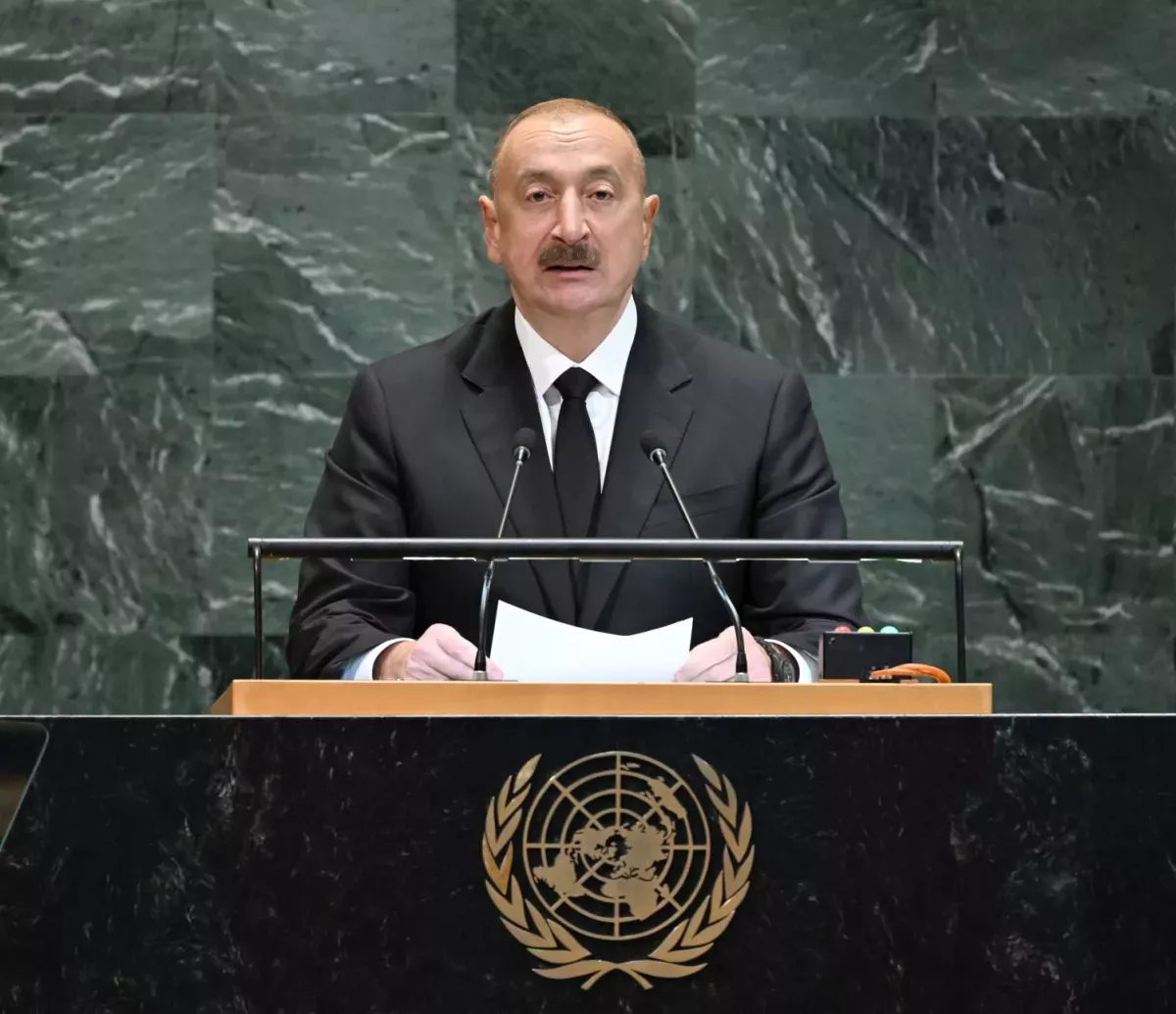Time for Congress to back Azerbaijan-Armenia peace deal Ex-congressman urges repeal of Section 907
An article by Michael Flanagan, published on the American website Townhall, focuses on the significance of repealing the discriminatory Section 907 of the Freedom Support Act. Caliber.Az presents key excerpts from the piece for its readers.
Editor’s note: Michael Flanagan is a former US Congressman from the Republican Party, representing Illinois’ 5th District in the House of Representatives.
Flanagan writes, the Trump Administration’s foreign policy successes deserve the applause and support of the American people and their elected representatives. It is unfortunate that the Nobel Peace Prize Committee did not award the President this year’s honor. The achievements include Israel/Gaza, Congo/Rwanda, Thailand/Cambodia, India/Pakistan—and the peace between Azerbaijan and Armenia stands out. It includes the emerging Trump Route for International Peace and Prosperity (TRIPP), and builds on decades of American and international efforts to resolve the differences between bitter rivals. Importantly, it also promotes American interests in a key region of the globe, and it is time for Congress to step up and support this peace effort by repealing Section 907 of the 1992 Freedom Support Act, a historic piece of legislation that is now becoming an obstacle to peace instead of facilitating it.

Karabakh [is - ed.] a mountainous autonomous region that belongs to Azerbaijan. Both ethnic Armenians and Azerbaijanis call it home. In 1988, the Armenians demanded that it be transferred to Armenia, and tensions between the two groups erupted in fighting. During this first round of the conflict, the Azerbaijani population was expelled from the region, while the Armenian lobby in the United States successfully promoted Section 907, intended to deny aid to and trade with the government of Azerbaijan.
Unfortunately, the area became a flashpoint. Iran, France, and especially Russia took the opportunity to back Armenia. The first round of fighting ended in 1994 with over a million people, most of them Azeris, having been forced from their homes, leaving Armenian forces in control of Karabakh and most of the territory in seven districts surrounding Azerbaijan. Armenia and Azerbaijan kept fighting intermittently. This ultimately resulted in Azerbaijan taking back control over the Armenian-controlled territory in two offensives, in 2020 and 2023.

The author believes that Armenia’s defeat was made possible by the unwillingness (or inability) of Russia to take significant action. Meanwhile, France has been in the middle of a slow political meltdown, with its flailing President Emmanuel Macron just reappointing a prime minister whose resignation he accepted a few days before. Earlier this year, Israel and the U.S. degraded Iranian capabilities, causing Armenia to turn more toward the U.S.
Meanwhile, America's relations with Azerbaijan have also progressed in recent years. Considerable improvement came about when Azerbaijan became an alternative supplier of energy to Europe after Russia reinvaded Ukraine in 2022.
Improved relations with both Armenia and Azerbaijan helped Washington facilitate the breakthrough in resolving their conflict. This has several strategic and economic implications for the U.S. Washington secured key wins, including long-term leasing and development rights of the TRIPP and a Strategic Working Group with Azerbaijan focused on critical sectors like energy, transportation, and defense. The TRIPP also means access to the Middle Corridor, an economic artery linking Europe to Central Asia while avoiding Russia and Iran, enhancing America’s abilities to compete against Russia and China in Eurasia.

President Trump consolidated these gains by continuing to waive the enforcement of Section 907. While this signals a willingness to cooperate with Baku as it builds critical infrastructure and de-escalates with Yerevan, permanent repeal remains a job for Congress.
Some Congressional representatives are unenthusiastic about boosting relations with Azerbaijan and the ongoing peace process, citing concerns of their Armenian diaspora constituents. Detractors have gone so far as to introduce bills to eliminate presidential waiver authority, thus barring even temporary extensions of U.S. aid.
In March, several representatives sent a letter to Secretary of State Marco Rubio urging the enforcement of Section 907. This would have presented a significant obstacle to the peace President Trump achieved five months later. Even following the meeting between Armenia, Azerbaijan, and U.S. leaders, another congressional amendment was proposed in September, again attempting to strike executive waiver authority.
Given U.S. interests in the region, enforcing Section 907 would only punish America’s friend as it attempts to achieve peace. Repealing it is the way to choose future peace over past hatreds and hostilities.
Azerbaijan’s President Ilham Aliyev, thanking Trump in his speech to the UN General Assembly, made it clear that he envisions burying the hatchet as the next step in relations between Washington and Baku.

The author is confident that the permanent removal of Section 907 by the US Congress would eliminate a legacy of double standards and help strengthen trust and cooperation at a time when Azerbaijan is contributing to global security and stability.
Though Chairman of the U.S. House Foreign Affairs Committee Brian Mast (R-FLA) and Senator Steve Daines(R-MT) have met with Azerbaijani presidential aide Hikmet Hajiyev about this, there are still no bills on the House floor to eliminate Section 907. While President Trump has waived enforcement, providing temporary relief and creating a path for peace, keeping it on the books will only limit trust in the bilateral relationship. Peace is never easy. Armenia and Azerbaijan have already chosen peace and done the hard work. The least Congress can do is follow their lead and repeal this relic of the past.








